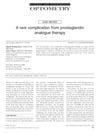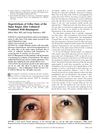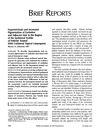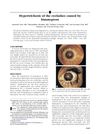Hypertrichosis of the Malar Areas and Poliosis of the Eyelashes Caused by Latanoprost
July 2014
in “
Actas dermo-sifiliográficas/Actas dermo-sifiliográficas
”
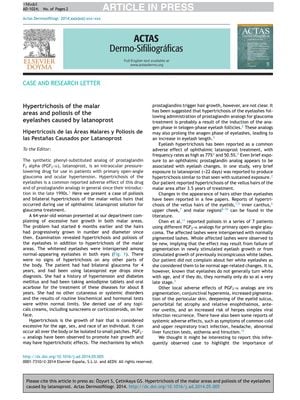
TLDR Latanoprost eye drops caused excessive hair growth and eyelash whitening in a woman.
The document reports a case of a 64-year-old woman who developed hypertrichosis (excessive hair growth) of the malar areas and poliosis (whitening) of the eyelashes after using latanoprost eye drops for glaucoma treatment for 3.5 years. Latanoprost is a synthetic analog of prostaglandin F₂ alpha, known to lower intraocular pressure in patients with primary open-angle glaucoma and ocular hypertension. The patient had no other signs of hypertrichosis on her body and her routine biochemical and hormonal tests were normal. The document discusses that hypertrichosis of the eyelashes is a common side effect of prostaglandin analogs, with reported frequency rates as high as 77% and 50.5%. The hypertrichosis is likely due to the induction of the anagen phase in eyelash follicles or prolongation of the anagen phase, leading to increased eyelash length. The case highlights the importance of considering topical prostaglandin F₂ alpha analog therapy as a possible cause of poliosis and hypertrichosis of the vellus hairs around the eyes. Other local and systemic adverse effects of prostaglandin F₂ alpha analogs are also mentioned.
